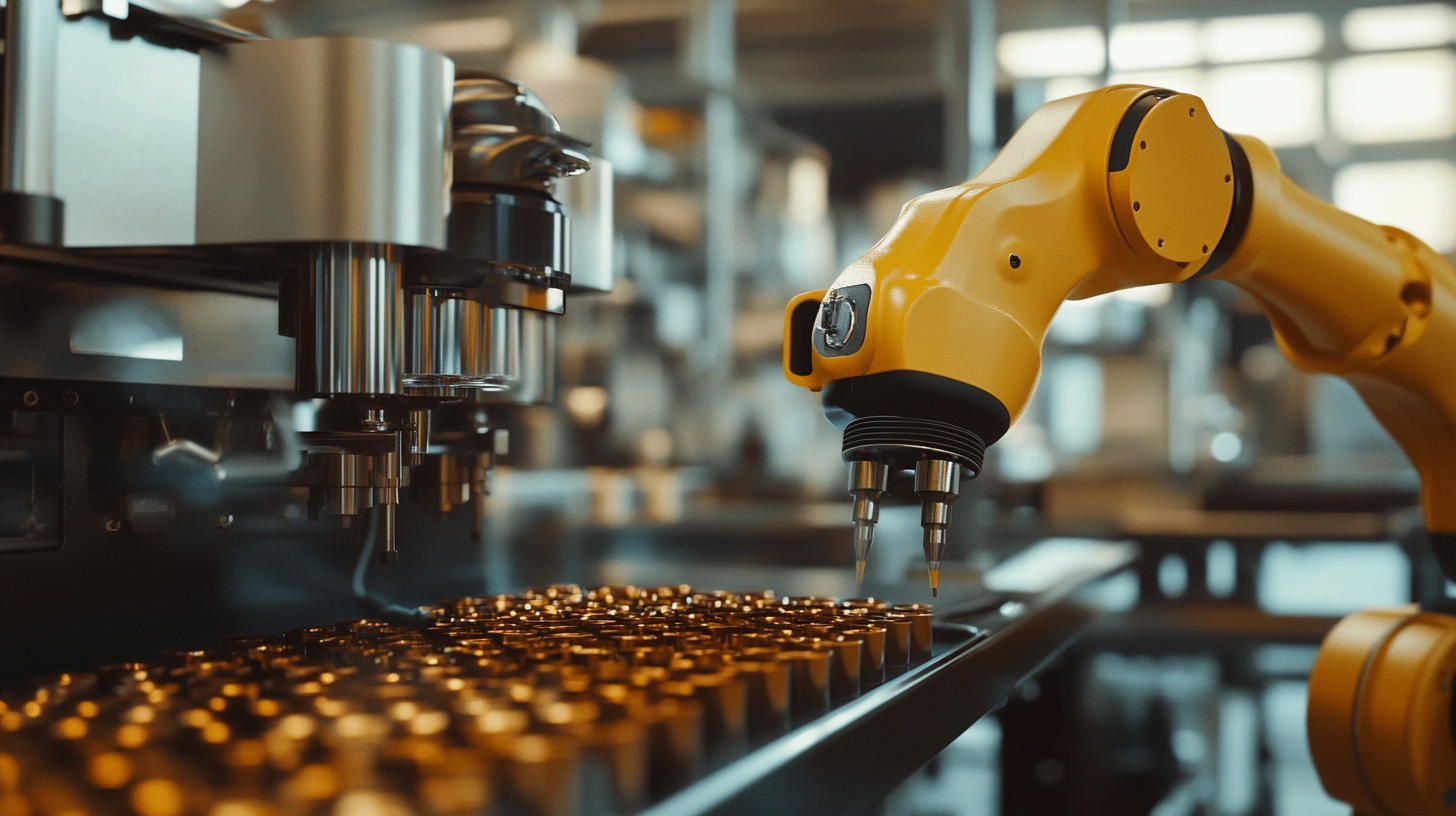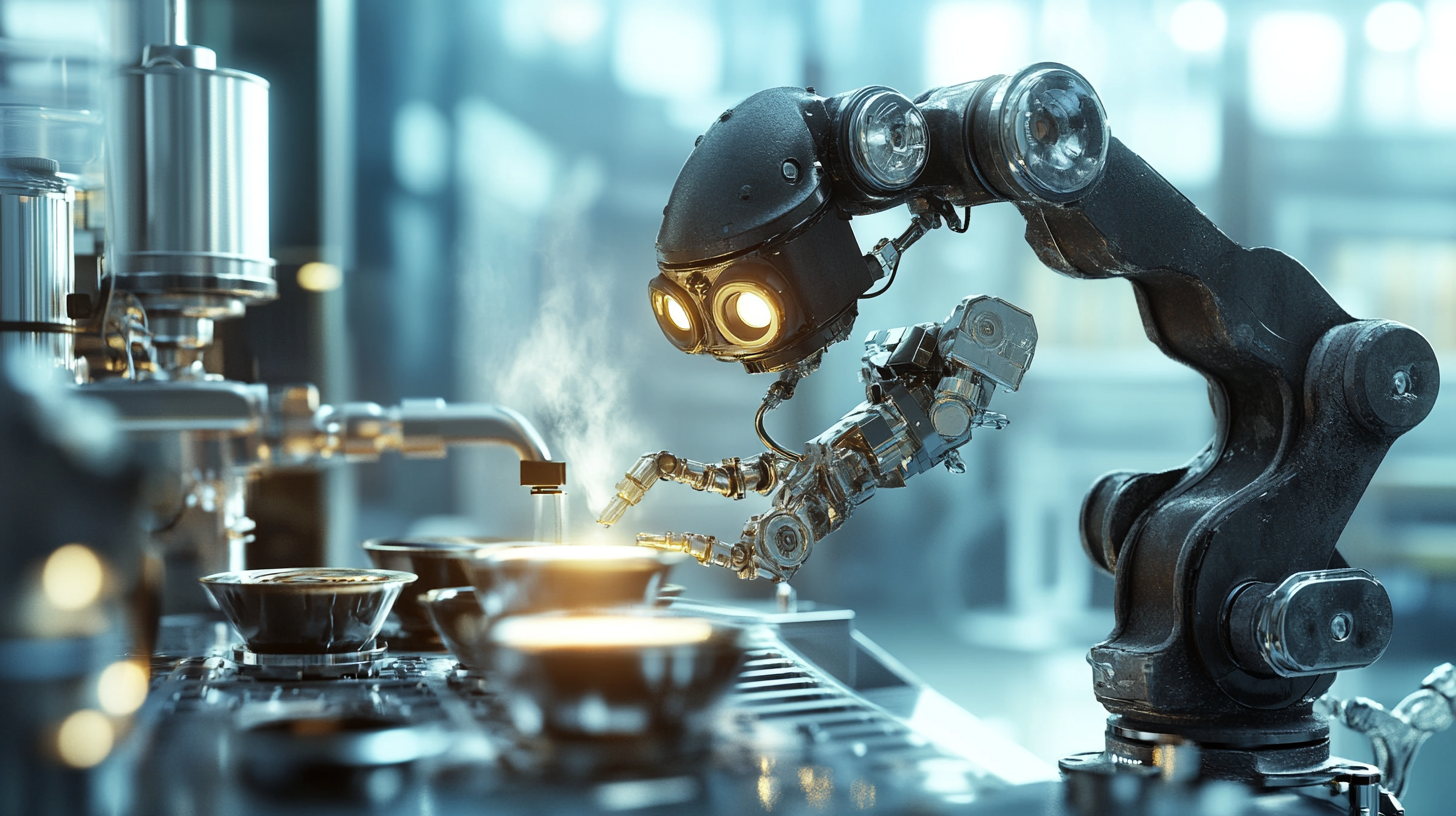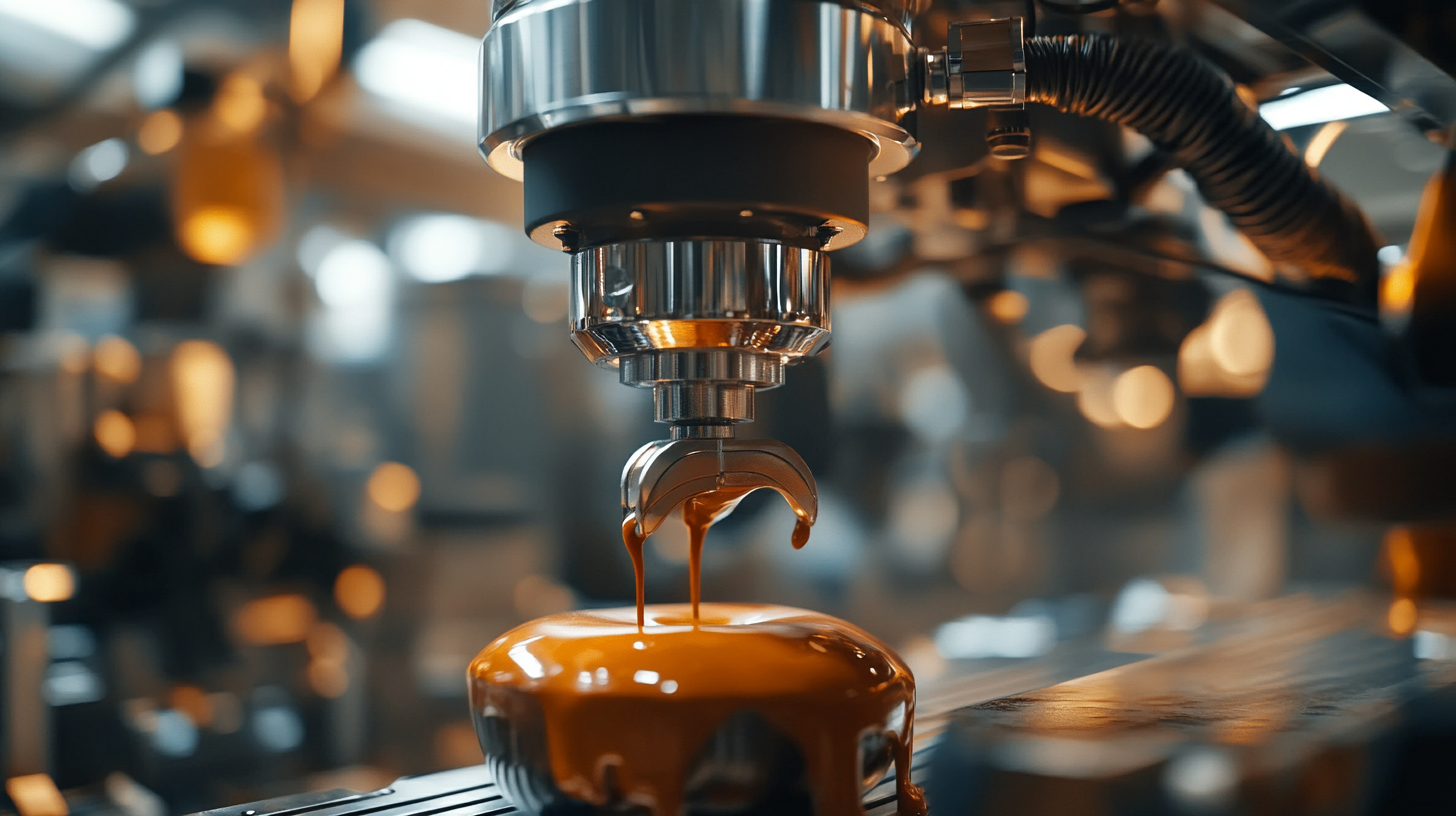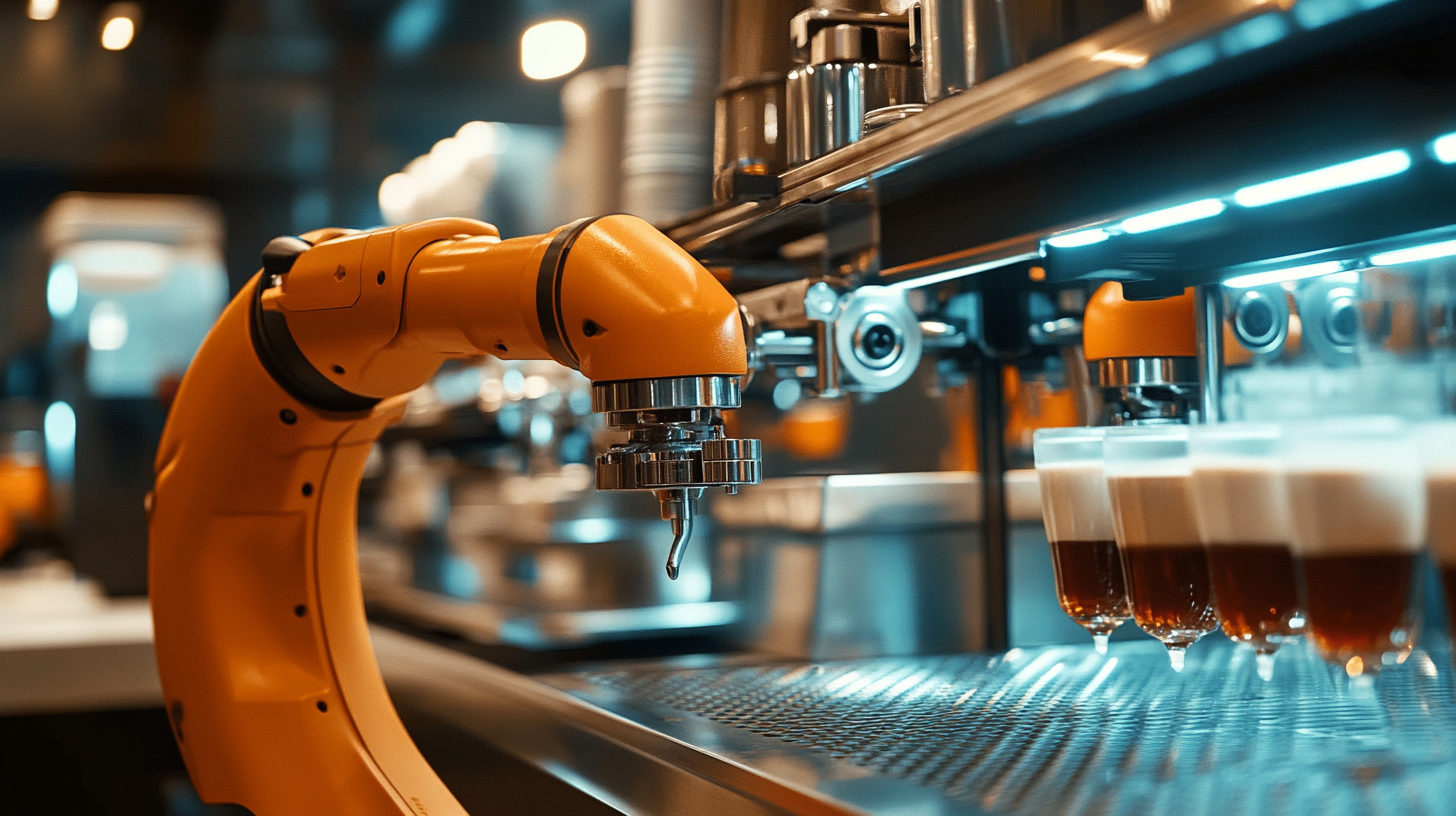

14, Raghava Enclave, Transport Road, Secunderabad, Hyderabad (500009)
©2024 All Rights Reserved by excitechrobot.com
In today's fast-evolving manufacturing landscape, robotics has emerged as a game-changer, driving productivity and efficiency to unprecedented levels. According to a report by the International Federation of Robotics, global sales of industrial robots reached a staggering 422,000 units in 2020, a testament to the growing adoption of automation in production processes. As manufacturers increasingly seek innovative solutions to optimize operations, "Excitech Robot" stands out as a sophisticated approach that seamlessly integrates intelligent automation with the specific needs of the manufacturing sector. This trend not only reduces labor costs but also enhances accuracy, while maintaining flexibility in production lines.
Moreover, a study from McKinsey estimates that automation could raise productivity growth globally by 0.8 to 1.4 percent annually. As organizations pivot towards more efficient methodologies, mastering "Excitech Robot" becomes essential for manufacturing companies aiming to stay competitive in a technology-driven era. This comprehensive guide will delve into the strategies and tools necessary to implement this advanced robotic framework, ultimately enhancing operational efficiency and driving sustainable growth in the manufacturing industry.

In the dynamic landscape of black coffee manufacturing, robotics has emerged as a pivotal force in enhancing efficiency and product quality. With the global coffee market projected to reach $102.15 billion by 2028, manufacturers are turning to automation to streamline operations and address the growing demand. According to a report from the International Coffee Organization, coffee consumption rose by 1.9% in 2020, highlighting the need for improved production methods that can keep pace with consumer preferences. Robotics plays a critical role in optimizing various stages of the coffee production process. From precision planting and harvesting to efficient grinding and packaging, automated systems significantly reduce labor costs and improve accuracy. A study conducted by MarketsandMarkets indicates that the global industrial robotics market is expected to grow to $80.9 billion by 2026, driven by advancements in AI and machine learning. These technologies not only enhance the efficiency of manufacturing processes but also ensure consistent quality in the final product. Furthermore, the implementation of robotics in quality control has become increasingly essential in maintaining high standards. Robots equipped with advanced sensors can detect defects that might go unnoticed by human workers, thus ensuring that only the best beans make it to the market. This shift towards a more automated production environment not only maximizes productivity but also aligns with the industry’s commitment to sustainability, minimizing waste and energy consumption. As coffee manufacturers continue to embrace robotic solutions, the future of black coffee production looks not only efficient but also more environmentally friendly.

In the realm of coffee production, automation is a game-changer that enhances both efficiency and quality. By integrating advanced technologies, manufacturers can streamline processes from bean selection to brewing, ensuring consistency and reducing waste. Key technologies such as robotics, AI-driven analytics, and IoT have revolutionized traditional methods, allowing for a smarter and more agile production environment.
Robotics, in particular, plays a crucial role in handling tasks that require precision and speed. Automated systems can sort, pack, and even roast coffee with minimal human intervention, significantly reducing labor costs and the risk of human error. This not only accelerates the production cycle but also enables manufacturers to focus on improving their product offerings by reallocating human resources to areas that require creativity and problem-solving.
Moreover, the integration of AI and machine learning into coffee production processes provides valuable insights into consumer preferences and market trends. By analyzing data collected from various stages of production and sales, companies can adjust their strategies in real-time, optimizing everything from supply chain logistics to flavor profiles. This data-driven approach ensures that manufacturers remain competitive in a fast-evolving industry while meeting the growing demands of the market.
The Internet of Things (IoT) further complements these advancements by enabling seamless communication between devices throughout the production line. Smart sensors can monitor environmental conditions, equipment performance, and quality metrics, providing manufacturers with critical feedback to maintain efficiency and avoid potential disruptions. As these technologies continue to evolve, coffee manufacturers have the opportunity to harness them fully, setting the stage for a new era of productivity and innovation in coffee production.

In the rapidly evolving landscape of coffee manufacturing, integrating smart robotics into existing systems represents a pivotal opportunity to enhance operational efficiency. According to a report by MarketsandMarkets, the global industrial robotics market is projected to reach $70 billion by 2026, growing at a CAGR of 12.5% during the forecast period. This surge signifies the increasing adoption of robotics across various sectors, including food and beverage manufacturing.
Implementing smart robotics in coffee production can significantly streamline processes such as sorting, roasting, and packaging. A 2021 study by McKinsey & Company found that automation in manufacturing could lead to productivity gains of up to 30%. For coffee manufacturers, this means not only reduced labor costs but also improved consistency and quality in the final product. By leveraging AI and machine learning capabilities, robots can adapt to variables in the manufacturing environment, ensuring a superior output that meets increasingly stringent quality standards.
Moreover, integrating these advanced technologies can enhance supply chain management. A report from the International Coffee Organization indicates that the global coffee market is projected to grow by over 2% annually, underscoring the need for efficient production methods to meet rising consumer demand. Smart robotics enable real-time monitoring and data analysis, allowing manufacturers to optimize their operations and respond swiftly to market fluctuations. This integration not only boosts efficiency but also positions companies to gain a competitive edge in a dynamic industry.

In the coffee industry, the integration of robotics has revolutionized manufacturing processes, leading to significant improvements in efficiency and productivity. Real-world case studies highlight how leading coffee producers incorporate robotic automation to streamline operations and enhance quality. For instance, a leading coffee roasting company implemented robotic systems for sorting and packaging beans, reducing human error and increasing output consistency. This automation not only minimized labor costs but also allowed the company to scale operations without compromising quality.
Another compelling example comes from a coffee shop chain that adopted robotic baristas to handle drink preparation. By utilizing advanced robotics, they not only ensured precision in every cup but also significantly sped up service during peak hours. This innovation led to higher customer satisfaction and increased sales, demonstrating how technology can enhance the customer experience while reducing the strain on staff.
In addition to these implementations, coffee industries are increasingly exploring robotics for supply chain optimization. Automated guided vehicles help transport coffee beans efficiently throughout facilities, ensuring that inventory management is seamless. These success stories exemplify how embracing robotics not only boosts manufacturing efficiency but also paves the way for a more sustainable future in the coffee sector. As more companies begin to recognize the benefits of automation, the potential for further advancements in this industry is limitless.
As the coffee industry evolves, future trends in robotics are set to redefine manufacturing efficiency. The integration of artificial intelligence in robotics is poised to create smarter machines capable of learning and adapting to complex processes. In coffee manufacturing, this means robots that can not only sort and package beans more efficiently but also monitor quality in real-time. AI-powered robots will analyze factors such as aroma and color, ensuring only the best beans reach consumers while minimizing waste.
Moreover, the rise of collaborative robots, or cobots, will facilitate a more harmonious relationship between human workers and machines within coffee manufacturing facilities. These cobots are designed to work alongside humans, taking on repetitive tasks that free up workers for more skilled roles. The flexibility of cobots allows manufacturers to scale operations quickly in response to fluctuating demand, increasing overall productivity without significant infrastructure investment.
Another trend gaining traction is the advancement in automation technologies, particularly in supply chain management. Robotics equipped with machine vision can streamline inventory processes, ensuring that raw materials are always adequately stocked to meet production needs. Additionally, the use of robotics in logistics, such as automated guided vehicles (AGVs) for transporting goods, will further enhance operational efficiency, reducing lead times and optimizing the delivery of coffee products. As these technological advancements unfold, the coffee manufacturing sector is poised for transformative growth.
